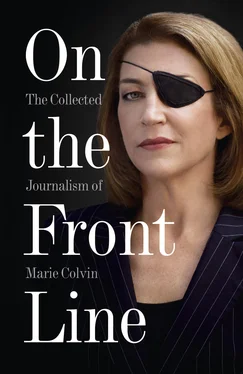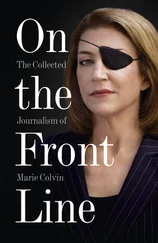While at university in the 1970s he had written a thesis on Jewish fringe groups and how to deal with them from a legal point of view. Here was the man to carry Shin Bet into the new era of the peace process between Israel and the Palestinians.
But when Yaakov Perry, the outgoing head of Shin Bet, who was a close friend of Rabin’s, chose him as his heir, the result was devastating. Six section heads resigned when they realised their way to the top was blocked by the appointment, creating a serious vacuum within the organisation.
Even during Perry’s last years as director-general, signs of unease within Shin Bet had become discernible. Part of these were about Perry himself, who was nicknamed the ‘trumpeter’ for his taste for boisterous parties and wild music. There were two commissions of inquiry into Shin Bet’s activities during Perry’s tenure. But Rabin, in keeping with his customary loyalty to his friends, overlooked the reports against him.
In the words of a leading Israeli security specialist, Shin Bet had grown ‘complacent, sloppy and corrupt’. In common with many other bodies in Israel, a malaise had set in, derived from the deep divisions in Israeli society, the lack of a common goal and the pursuit of peace amid continuing terror.
None the less, it knew that an assassination was in the wind. Three weeks earlier, the heads of Shin Bet summoned leaders of the Jewish settler movement to meetings in Tel Aviv where they were urged to help build a profile of a potential assassin. They refused, saying that as leaders of their communities their involvement with the security services was inappropriate.
They assured Shin Bet that it was highly unlikely that a settler would assassinate a Jewish leader anyway. It would be better, they warned, for the security service to concentrate its energies on the Israeli heartland – the suburbs of Tel Aviv, for example.
They were right, and the view is that the new head of Shin Bet, as an expert on Jewish extremists, should have evaluated their advice better, and followed it. Like Britain’s naval guns guarding the fortress of Singapore in 1941, Shin Bet was pointing the wrong way last Saturday night.
The plain fact is that everyone knew the prime minister was in danger that night. In the days leading up to the peace demonstration, the intelligence services had publicised their fears of an attack, perhaps by sniper fire or a car bomb. The assumption was that it would come from Palestinian extremists.
There was extra surveillance around the square, with more than 1,000 policemen on duty, snipers crouched on rooftops and checks on hundreds of apartments.
Even so, Rabin failed to take the most elementary precaution of wearing a bullet-proof vest. One Israeli security expert last week laid some of the blame for this on the chummy relationship between the prime minister and the man in charge of VIP security, Colonel Benny Lahav (since resigned) of Shin Bet. It meant that Lahav could not exercise his authority. ‘Had I been in charge,’ the expert said, ‘I would have told the prime minister that either he wore a bullet-proof vest or I would, that I could not protect him without it. Such a firm stand would have got through to Rabin.’
Error was compounded by error. Shin Bet’s rules require the prime minister to be in a ‘sterile zone’ at all times, surrounded by a minimum of three Shin Bet bodyguards, preferably six. Last Saturday there were only two near him as he took his place on the stage with Shimon Peres.
By that time a vital breach in security had already taken place. The original plan had been for Rabin to arrive at a nearby municipal building and go to the rally via a basement door through a secure area not open to the public.
Instead, the premier’s car was parked next to the stage and he climbed to it up an open flight of stairs. ‘I don’t know why the change was made, but it cost Rabin his life. Under the original plan, he would not have been exposed to the public at all,’ said a security official.
Just after 8pm, Rabin took the microphone to address the cheering crowd. ‘Allow me to say that I am excited. I was a military man for 27 years. I fought as long as there was no chance for peace. I believe there is now a chance for peace that must be taken.’
Surprisingly, since he was awkward in public and usually fled after speaking, he stayed with Peres and other Israeli personalities to sing the Song of Peace, an anthem that was banned in Israel when it was released in 1969. Nobody had ever seen Rabin sing in public. It was a sign of his joy that after all the criticism of his policies he felt that the unprecedented numbers at the rally validated his decisions.
Then, 15 minutes before Rabin took his fatal walk down the stairs from the podium, two more security lapses gave Amir his chance. Shin Bet should have been guarding the car parking area beneath the stage. They were not. When an officer noticed that this area had not been secured, he ordered police to do so. By then, Amir was already inside, explaining to the police that he was a VIP driver called up for extra duties. Nobody challenged his story. As he waited behind a barrier for the right moment to strike, the Beretta lay hidden in his clothes.
By now, the Shin Bet officer in charge had reason to be distracted. Over his radio he received a tip-off that a shooting was imminent. ‘The tension was immense, and he wanted to get Rabin off the stage as fast as possible. But he was convinced that the main threat was from Palestinians,’ said a security official.
At the end of the demonstration, Rabin came down the stairs to his car, failing to make sure the bodyguards were around him. Another blunder. The police unit in the parking area had not received a message that Rabin was arriving, so no safe channel was formed. ‘We let down our guard,’ said the security official. ‘We felt that the rally had passed peaceably and that we had done our job.’
At 9.44, as Rabin was getting into his armoured Cadillac, Amir stepped forward. From 5 feet away he drew his pistol and fired. Ingeniously, he shouted to the police that it was ‘only an exercise’ and he was firing blanks. They believed him.
Rabin’s bodyguard, hit in the shoulder, knew otherwise. He bundled the prime minister, a bullet in his stomach, another in his back, into the car and they sped off. At the hospital, there was the final blunder: nobody was ready to receive them. In the confusion nobody had radioed ahead. The chief surgeon, summoned to an emergency on a badly wounded man, found he was treating the dying prime minister.
One top Jewish counter-terrorist expert said of the colossal foul-up: ‘It is beyond negligence of the most simple basic procedures. Rabin was abandoned.’
Amir told security officials who surrounded him immediately after the killing, the gun still in his hand: ‘God told me to do it. I have no regrets.’ The fact that he believed he had a religious mandate shocked Israelis.
So did the crass statements by supporters. One student at Bar Ilan sent a message on the Internet: ‘Happy holiday everyone. The witch is dead; the wicked witch is dead.’ The West Bank settlement of Maale Amos hung out a sign: ‘We are all Yigal Amir.’
‘I am very happy that the dictator Rabin is dead,’ said Aryeh Bar Yosef, a resident of Kiryat Arba, a radical settlement outside Hebron, which has made a shrine of the grave of Baruch Goldstein, who gunned down 29 Palestinians at the Hebron mosque last year.
‘I hope that the Nazi Arafat and his friend Peres will die like Rabin. Rabin, the head of the traitors, got what he deserved. Praise be to God. Yigal Amir redeemed us from the terrible situation we were in.’
Such statements have forced Israelis to face the dark netherworld of Jewish extremist groups. Eyal follows the teachings of Meir Kahane, a Brooklyn-based rabbi who moved to Israel and founded the extremist Kach movement.
Читать дальше












